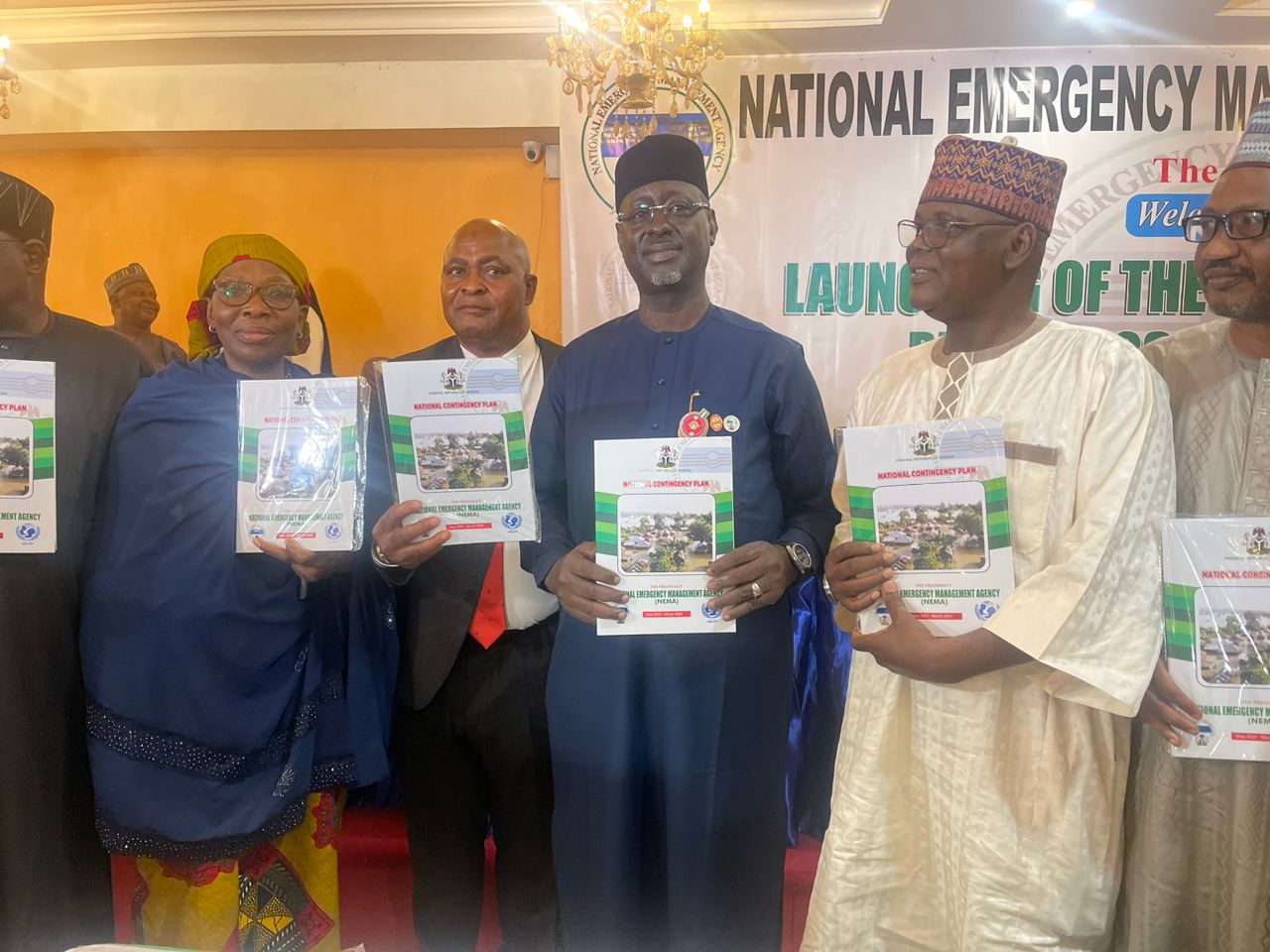The National Emergency Management Agency (NEMA) on Monday launched the National Contingency Plan (2023 to 2025), which is aimed at tackling flooding and other natural disasters in the country.
Speaking during its inauguration, the Director-General of NEMA, Mustpha Habib Ahmed, said: “The importance of a National Contingency Plan cannot be overstated as Nigeria has experienced quite a number of human and natural disasters, public health emergencies, and other unforeseen events which can occur at any moment, causing immense devastation and disruption of the functioning of the society. It is our duty, as disaster managers and citizens, to ensure that we are adequately prepared to respond swiftly and efficiently to such situations.”
He further said it was important to emphasise that NEMA in collaboration with UNICEF and other stakeholders carried out a risk analysis of Nigeria in 2021 and the exercise was carried out across the geo-political zones of the country and covered different risks and hazards at the Local Government Areas (LGAs) level, including floods; epidemics; conflict, and violence amongst others.
“The objective of the analysis was to identify, assess and rank risks with a view to understanding related vulnerabilities and capacities, while fostering effective risk management approaches among agencies addressing the same or similar threats. The outcome of the risk analysis guided the review of the National Contingency Plan,” the director-general stated.
Speaking on the new plan, Ahmed said: “The National Contingency Plan will not only safeguard lives and livelihoods but also reinforce our resilience as a nation. It empowers us to respond effectively to emergencies, mitigate their impact and prepare for response should they occur.
“NEMA will focus on disaster preparedness actions including continuous revision of risks across the country, supporting states in development of contingency plans and also focus on early warning system to enable communities understand the risks they face and linkages to ensure they are able to prevent, prepare and respond to these risks. To do this, NEMA is specially requesting the support of UNICEF in this regard. Additionally, NEMA will want other partners to commit to this support in a coordinated manner while working with concerned departments in NEMA, to ensure the resources are evenly distributed across the country especially with the current limited resources.”
Also speaking, the Minister of Information and National Orientation, Alhaji Mohammed Idris, congratulated NEMA, MDAs and UNICEF on the development, stressing that disasters have taken a toll on citizens year by year, resulting in loss of lives and livelihoods, and leading to negative multiplier effects.
“Today’s launch is timely as it resonates with the government’s drive to protect citizens from all risks to their well-being, including security, displacement, epidemics, and conflict.
“The plan evaluated twelve (12) different risks, including flooding, health epidemics, and conflict, with a plan to mitigate their impact. Some of these risks are natural, while others are caused by humans, even though poverty and socio-economic disparities were identified as contributors to the latter.
“In developing prevention and mitigation measures regarding human-induced risks, I call on implementing agencies to design strategic communication plans that deploy participatory, dialogic, and horizontal methods rather than the usual dissemination through radio and television.
“Strategic communication plans aim for specific audiences and apply a mix of communication channels, including mainstream, folk media, interpersonal, IEC, and new media, ensuring that the message development process is inclusive, consistent, and frequent.
“The Ministry of Information and National Orientation is leading a campaign for national reorientation, so that negative attitudes including those that contribute to these disasters are addressed. We are available and ready to provide guidance on the communication component during the implementation and evaluation stages of the plan.
“Once again, I congratulate the NEMA and the other agencies, especially UNICEF, for being at the forefront of improving health outcomes regarding women and children.” he said.
Also, the country representative of UNICEF Nigeria, Cristian Munduate, represented by chief of WASH, Jane Bevan, while speaking at the event facilitated by ZLK media Consult said: “After the devastating floods that affected 4.4 million people Nigeria in 2022, including some 2.6m children, and displaced around 2.4m people, this event today highlights the importance of emergency preparedness. To prepare means to avert or lessen the impact of flooding on those living in flood-prone areas. To prepare therefore also means to plan in advance, and therefore here we are today to review the National Contingency Plan.
“In 2022, UNICEF supported NEMA In updating the risk analysis. In addition, in the course of five workshops that convened State Emergency Management Authority or SEMA representatives from 22 states, the five zonal contingency plans launched today were developed.”




